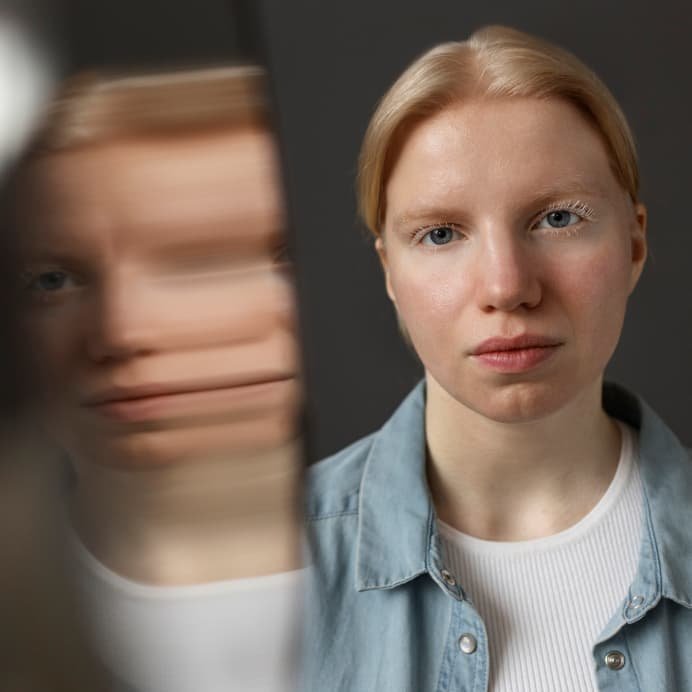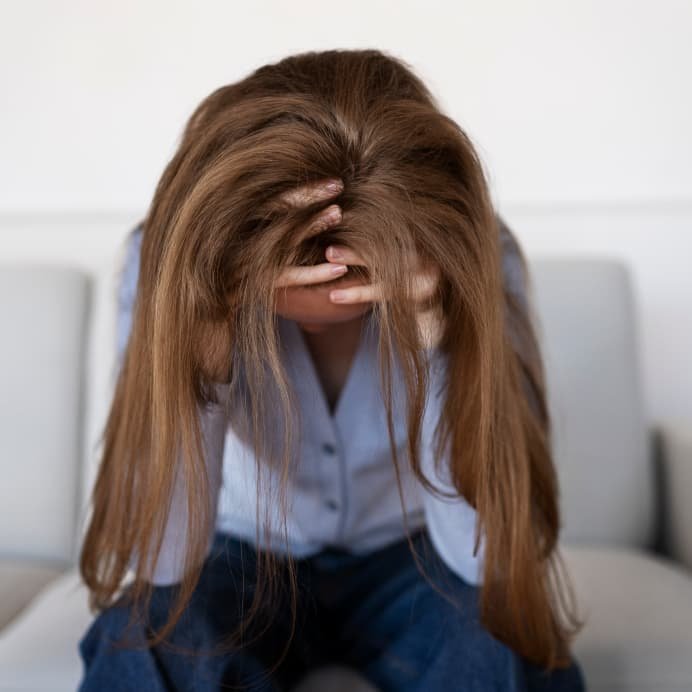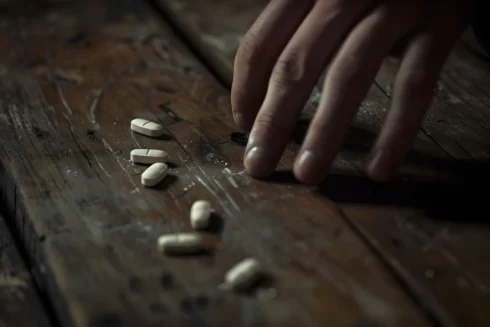Co-Occurring Disorders
Co-Occurring Disorders
What are Co-occurring Disorders?
Co-occurring disorders, often referred to as dual diagnosis, occur when an individual simultaneously experiences two or more distinct conditions.
In the context of mental health, co-occurring disorders entail the presence of a mental health issue alongside a substance use problem. Such disorders encompass a range of mental health challenges like anxiety, depression, bipolar disorder, schizophrenia, and others.
Managing co-occurring disorders poses a challenge, given that the symptoms of each condition may intersect or exacerbate one another.
Effective treatment involves addressing both the mental health issue and substance use problem concurrently. This typically involves a combination of therapy, medication, support groups, and positive lifestyle changes.


Warning Signs of Co-occurring Disorders:cy
Timely recognition of warning signs is pivotal in facilitating effective treatment and improving the likelihood of successful outcomes. It is crucial to be mindful of these signs, which may include:
- Increased Substance Use: Escalating the use of alcohol, drugs, or medications beyond normal or recreational levels may indicate a co-occurring disorder with a mental health condition.
- Worsening Mental Health Symptoms: If mental health symptoms intensify or become more frequent, such as depression, anxiety, or mood swings, it may suggest the presence of a co-occurring disorder.
- Difficulty Functioning in Daily Life: Struggling to meet responsibilities at work, school, or home, declining performance or attendance, and difficulty maintaining relationships can be indicative of co-occurring disorders.
- Neglecting Self-care: Signs such as neglecting personal hygiene, loss of interest in previously enjoyed activities, or significant changes in appetite or sleep patterns can signal underlying co-occurring disorders.
- Increased Risk-taking Behavior: Engaging in impulsive or reckless behavior, displaying aggression, or having frequent conflicts with others may manifest co-occurring disorders.
- Withdrawal from Social Interactions: Avoiding social situations, isolating oneself from friends or family, or losing interest in socializing can be indicators of co-occurring disorders.
- Poor Treatment Response: Inadequate or ineffective response to treatment for mental health or substance use issues may suggest the presence of co-occurring disorders.

Health Complications with Co-occurring Disorders:
Co-occurring disorders can lead to various health complications, impacting both mental and physical well-being. Common health complications associated with co-occurring disorders include:
- Worsening Mental Health: Exacerbation of symptoms of mental health illnesses, leading to increased emotional distress, difficulty coping with daily life, and a higher risk of self-harm or suicide.
- Substance-related Problems: Aggravation of substance-related problems, potentially resulting in increased substance dependence, drug overdose, or other physical health issues from long-term substance abuse.
- Impaired Physical Health: Adverse effects on physical health, including neglect of physical well-being, poor nutrition, weakened immune systems, and increased vulnerability to illnesses.
- Social and Relationship Challenges: Strained relationships and social interactions, characterized by isolation, conflicts, and difficulties maintaining healthy connections with family, friends, and colleagues.
- Financial and Legal Consequences: Addressing this complex disorder may contribute to financial hardships due to the high cost of dual diagnosis treatment, legal issues arising from substance-related offenses, and reduced work productivity.
If you or someone you care about is displaying symptoms of co-occurring disorders, reach out to 911 Detox Center, a reputable provider with over 5 years of experience. We offer professional dual diagnosis counseling and develop tailored co-occurring disorders programs based on each patient’s condition. Take the first step toward healing by calling (409) 9000 911 and accessing the support you deserve from one of the leading Dual Diagnosis Rehabs in LA.

Why Choose 911 Detox recovery for Alcohol Rehabilitation?
Struggling with alcohol addiction can feel isolating and overwhelming, but you don’t have to go through it alone. At 911 Detox Center, we offer a transformative journey towards lasting sobriety that goes beyond just detox.

Detox
Our journey begins with a safe and comfortable, medically supervised detox. We understand the challenges of withdrawal, so we’ll be by your side, managing symptoms and addressing underlying triggers.
Residential
Immerse yourself in a supportive and structured program designed for healing and self-discovery. Through individual therapy sessions, you’ll delve deeper into your story, gaining insights and tools for lasting change.
Recovery Maintenance
Our commitment extends beyond treatment. We offer ongoing support groups, connecting you with others who understand your struggles and celebrate your successes.
Our Programs
We focus on healing your mind, body, and spirit, not just stopping substances, for a holistic approach to lasting sobriety. Whether you're battling a new addiction, facing relapse, or carrying past trauma, we're your partner on the journey to a brighter future, free from addiction's grip․
Detox Program
Our safe and supportive detox program can help you clear your head and start fresh. We'll be right there with you, gently guiding your body's natural healing.
Residential Program
Our residential program repairs your body, mind, and spirit. Imagine a life free from addiction, feeling healthy and happy - we'll help you get there.







